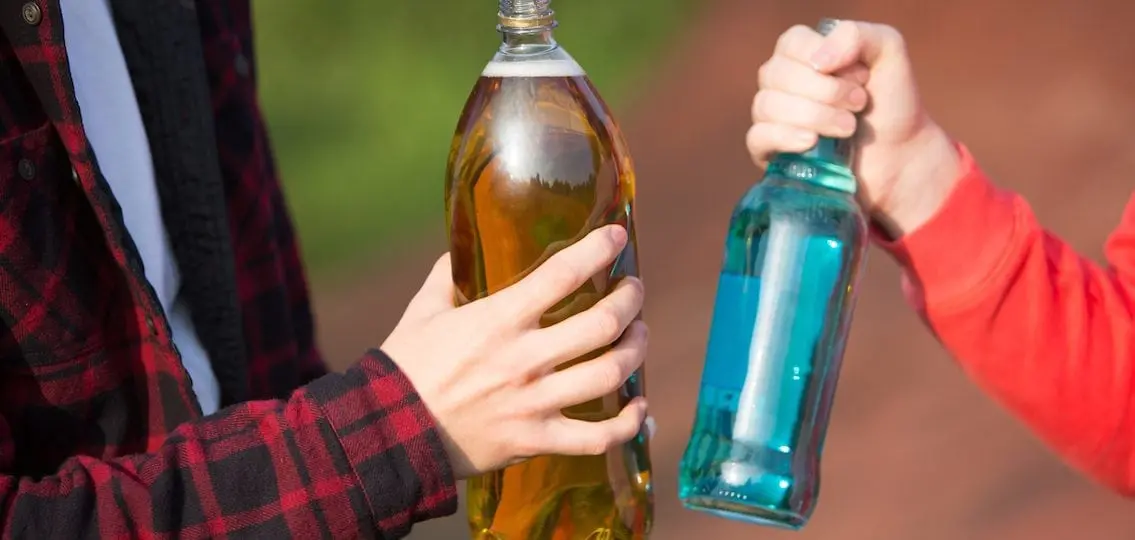Dear Your Teen,
My 14-year-old son was caught planning and encouraging a handful of his friends to bring alcohol to his sleepover party. Additionally, we found a vaping device in his room. He admitted this was not the first time he snuck alcohol at our house. We also discovered he sent some inappropriate photos from his phone. We have spoken with trusted friends and family for advice and received mixed responses. Some feel we should use this as a teaching opportunity. Others feel like we should apply strict consequences for this breach of trust. We are torn.
I was grounded continuously and learned nothing from it growing up. But I also never had serious discussions with my parents—only yelling. So does grounding work? Should I do something else? I’m inclined to use this as an opportunity to remind them of the dangers of alcohol and offer alternative sources of fun. But I am also concerned about ensuring the other parents are okay with this plan and doing what’s right for my son. Help!
EXPERT | Kelly M. Christian, Ph.D.
In adolescence, many children are eager to gain independence and leave any perceived “childish” behaviors behind them. The quickest way for many teens to do this is to take an interest in more adult-like activities, such as drinking, smoking, and dating.
For many younger teens, this means talking a good game with their peers without ever actually engaging in illicit activities. You know your son has hosted a sleepover with alcohol, is vaping, and participating in some other activities without good judgment. Therefore it’s important to intervene swiftly, and discuss what is high risk behavior. Several measures can be taken to curb his proclivity to grow up a bit faster than what he’s developmentally ready to face.
High Risk Behavior
First, if you haven’t already, it is not too late to have “the talk” on alcohol, drug use, and sexual activity. An essential factor that deters children from engaging in risk-taking behaviors is parental engagement and clear communication. Embedded in this conversation is a consistent message about your rules. Also, the consequences for drug and alcohol use and other unwanted behaviors like sexting. We know that children are more likely to avoid using substances when parents are clear that recreational substance use is illegal and not permitted. And that they will experience consequences for their actions.
The gravity of this conversation may initially feel uncomfortable for your teenager. But they are more likely to listen if they are an active participant in the discussion, rather than receiving a lecture. Some points to discuss are the serious consequences. Not only for him and his friends but as the parents. For hosting the event, you can be liable for their illegal behavior.
If you already had this initial discussion with your son, plan to have it many more times. As he grows up, this conversion will change as new challenges with substance use and sexual behavior are likely to present themselves.
Discipline Strategies For Teens
Second, your concern about “grounding” as a tactic to change your child’s behavior is not unfounded. However, as the parent, you also have to teach your child about the relationship between his actions and the consequences of his actions. It is vital that you and your husband send a consistent message about the ramifications of these behaviors. Use natural consequences that you can implement.
For example, a natural consequence at this age is an increase in parental supervision. As he demonstrates responsible behavior, he can earn privileges and independence. This means openly monitoring his phone activity. He should know that you are reviewing what he is up to with peers. As he demonstrates better choices with his phone, he can eventually earn greater privacy. Likewise, you might see the benefit of him socializing with his friends. But you may want to limit sleepovers or place restrictions so you can provide greater supervision of their behavior.
Making More Responsible Choices
Third, you should evaluate your son’s peer relationships and the role he is taking in spurring on these unwanted behaviors. A frank discussion on how he can effectively navigate situations where alcohol, drugs, and other risky behaviors are likely to occur can help. This might give him more confidence to get out of these situations before he’s in over his head. Talk with him about how to handle his friends who have come to expect him to be interested in drinking, vaping, and the misuse of his phone. Discussing how your son will handle these situations will help him articulate how to make more responsible choices in the future.
Finally, you may find in your conversations that there is more going on than just experimenting with alcohol or attempts to grow up a bit too fast. If so, it is a good idea to work with an outside professional that specializes in adolescent substance abuse. Doing so may aid in developing collaborative communication between you and your son. It may also provide the space to grapple with changes in your relationship as he seeks greater independence.
The therapist may also want to work directly with your son on factors frequently related to conduct concerns. These may include improving his emotional regulation skills, reducing impulsive behavior. He or she might suggest engaging in extracurricular activities that will provide him with developmentally appropriate opportunities. These will enable him to take on greater responsibility and independence.




